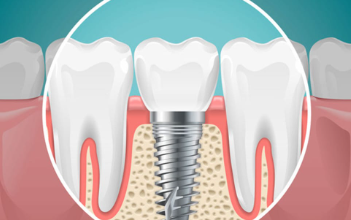How Stress Hides in Your Body Without You Realising It

You might think stress shows up as worry, panic, or the occasional meltdown. But for many people, stress hides in far more subtle, physical ways. That nagging headache, stiff shoulders, random stomach discomfort, or that feeling of being “wired but tired” — they’re often signs of stress that’s taken root in your body without asking for permission.
The body is incredibly good at adapting to pressure. But over time, that adaptation can backfire. Stress doesn’t always yell; sometimes it whispers. You might not even feel particularly anxious, but your body may still be locked in a cycle of tension. That’s why some people explore holistic methods like reiki healing Perth practitioners offer — not just to relax, but to reconnect with what their body’s been holding onto in silence.
What “Hidden” Stress Actually Looks Like
Not all stress comes from deadlines or obvious emotional pressure. Long-term low-grade stress, also known as chronic stress, builds slowly and can sneak past your mental radar. You might get used to the symptoms until they become your “new normal.”
Common physical signs of hidden stress include:
- Tight neck, shoulders, or jaw (often mistaken for posture issues)
- Shallow breathing or frequent sighing
- Digestive problems with no clear medical cause
- Unexplained fatigue or poor sleep despite rest
- Random aches or skin flare-ups
The tricky part? Most of these symptoms are often blamed on something else — like poor ergonomics, diet, or aging — rather than emotional strain.
See also: Transforming Healthcare: A Decade of Change
Why Your Body Stores Stress (Even When You Think You’re Fine)
The body and mind are deeply connected. When you go through stressful situations, especially ones that feel unresolved, the nervous system can remain in a heightened state long after the event. This is part of your fight-or-flight response. In the short term, it’s helpful. But when that state lingers, it starts to wear down different systems in the body.
Muscles tense to protect you. Digestion slows because it’s not a “priority” during stress. Breathing becomes shallow, which reduces oxygen flow. Even your immune system can take a hit. All of this happens behind the scenes while you continue on with your day.
The Mental Load Adds Up Physically
Sometimes, it’s not about one major event, but a constant stream of small stressors — a tough work environment, unresolved relationships, or simply never giving yourself downtime. This creates what’s called an “allostatic load”: the cumulative wear and tear on the body caused by repeated exposure to stress.
If you often push through, stay “productive,” and don’t allow time to slow down or release tension, the load builds quietly. Eventually, it shows up in ways you can’t ignore — frequent illness, burnout, or chronic pain.
How to Recognise and Release Stored Stress
The good news is that you can interrupt this cycle. But the key is awareness. The body often knows something’s wrong before the mind does — so paying attention to physical cues can be the first step toward release.
Here are some simple ways to reconnect with what your body’s holding:
- Body scans: Lie down and slowly bring awareness to each part of your body. Notice areas of tension without trying to “fix” them — just observe.
- Breathwork: Deep, conscious breathing calms the nervous system and signals your body it’s safe to relax.
- Gentle movement: Walking, stretching, or slow yoga can help release pent-up energy.
- Hands-on therapies: Massage, craniosacral therapy, or reiki can support the body in letting go of stuck tension.
- These methods aren’t about forcing stress out, but about creating space for the body to unwind — something it often doesn’t get the chance to do on its own.
What Makes Energy Work Like Reiki Different?
While physical movement and breath can help, many people find that deeper emotional or energetic stress is harder to access. That’s where modalities like reiki come in. Rather than targeting symptoms directly, reiki works on the energetic level — aiming to balance the body’s internal flow.
During a reiki session, you might not feel “fixed” in the way a massage loosens a knot, but many people report feeling lighter, more centred, or emotionally clearer afterwards. This is often because it helps shift patterns of tension that your conscious mind may not even be aware of.
It’s not about belief in a system — it’s about giving your body a chance to process things it hasn’t had the bandwidth to release.
Everyday Habits That Quietly Help
Stress management doesn’t have to be grand. Small, consistent habits add up. A few ideas:
- Take intentional screen breaks every 90 minutes
- Do a two-minute stretch or breath reset between tasks
- Listen to music that shifts your mood
- Take time outdoors without your phone
- Keep a “worry log” to offload mental clutter
Even five minutes of mindful space per day can begin to shift how your body holds stress.





